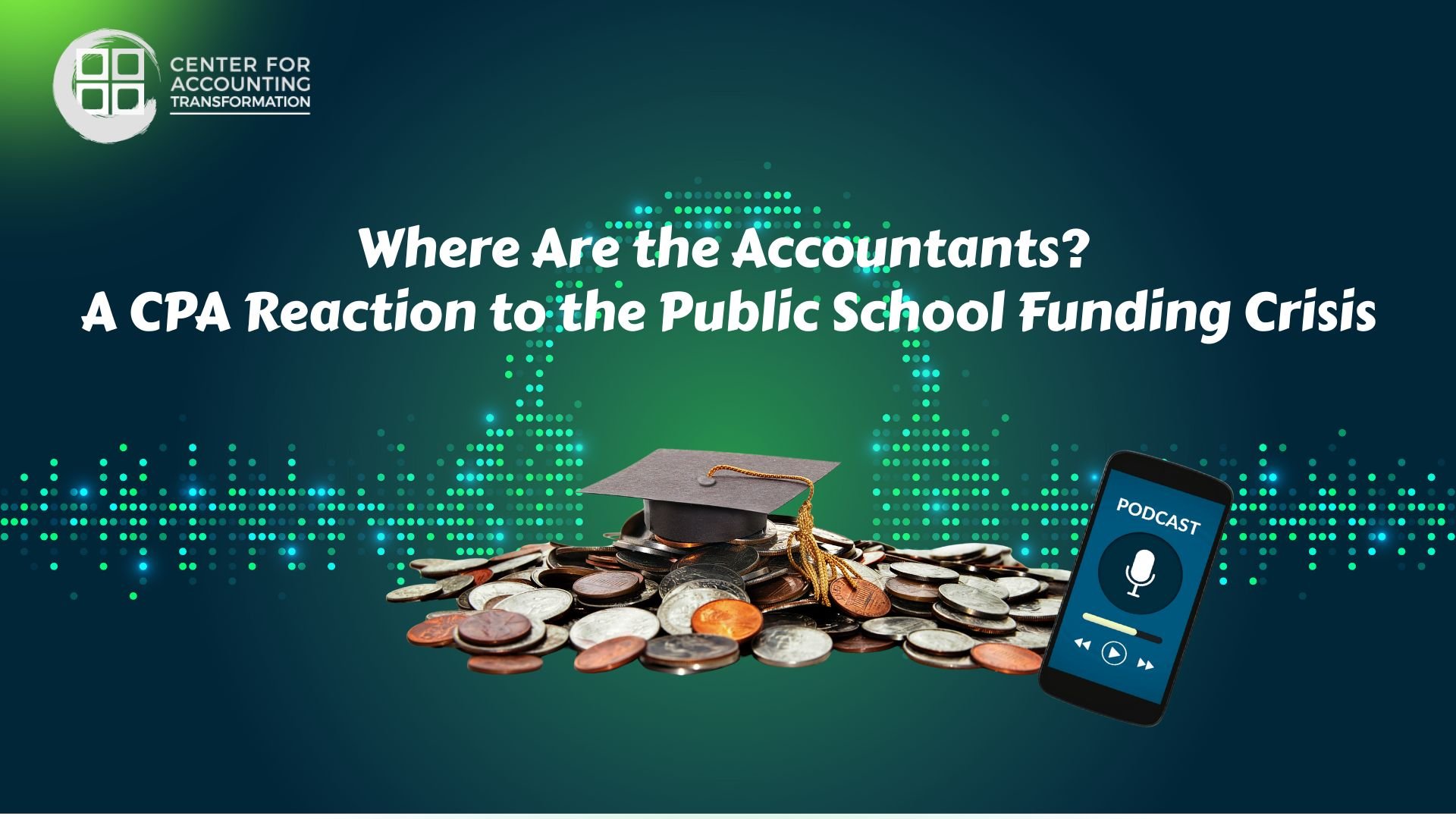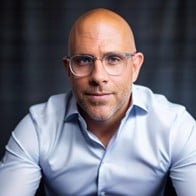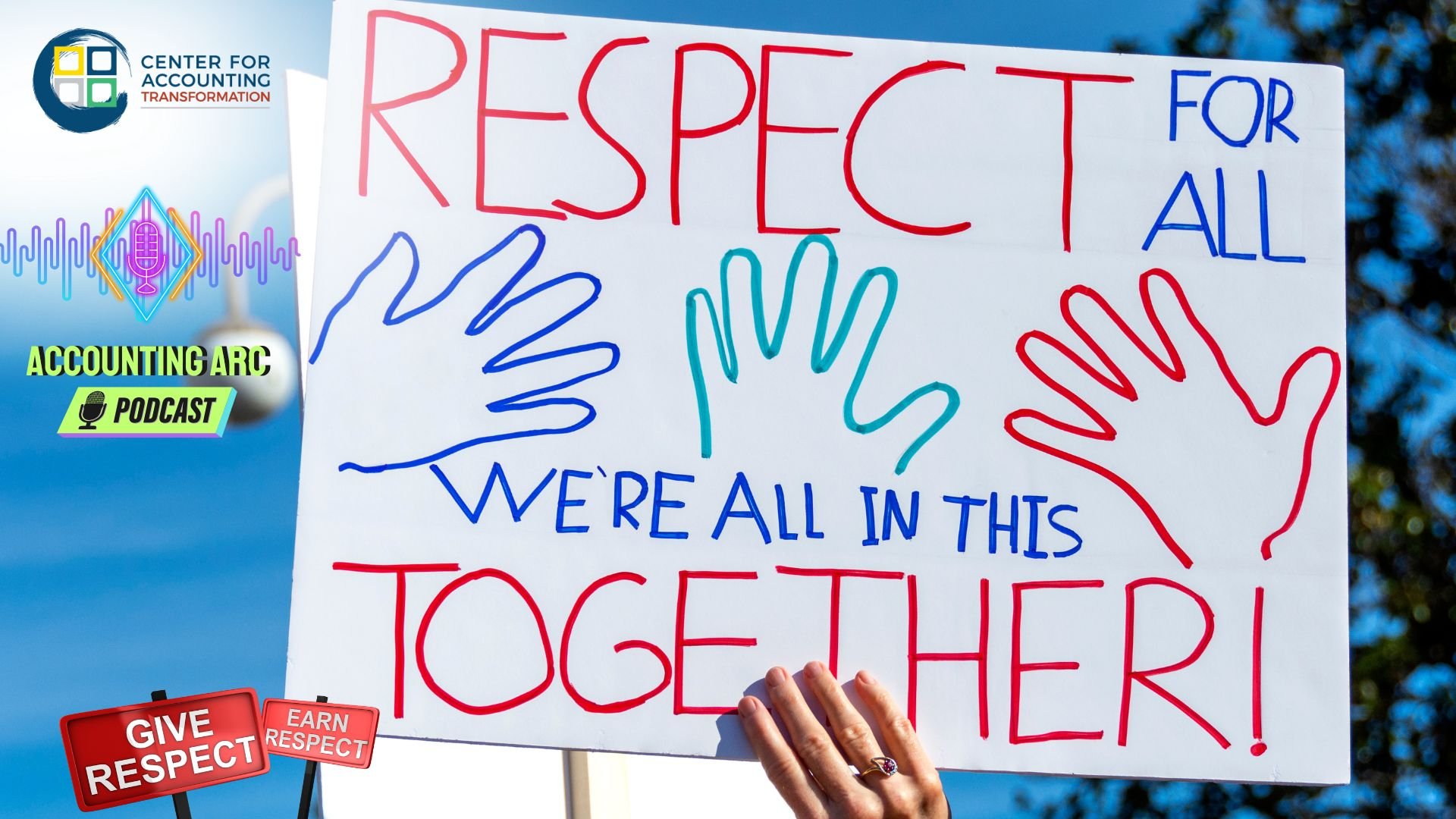0
Where Are the Accountants? Unpacking the CFO Void in Public Education

Accounting ARC hosts break down how broken budgeting and missing financial leadership are pushing public schools toward collapse.
What happens when no one at the table understands the difference between a grant and a sustainable revenue stream?
That’s the question Donny Shimamoto, CPA.CITP, CGMA, and Byron Patrick, CPA.CITP, CGMA, wrestle with in a special reaction episode of the Accounting ARC podcast. Sparked by a CNBC video titled Why Public Schools Are Going Broke in the U.S., the episode offers an accountant’s perspective on one of America’s most emotionally charged—and financially mismanaged—public policy issues: education funding.
Shimamoto, the founder of IntrapriseTechKnowlogies and the Center for Accounting Transformation, opened the conversation with a simple but searing question: “Where is the CFO in all of this?” Patrick, CEO of VERIFYiQ and co-founder of TB Academy, didn’t hesitate. “It’s like budgeting on hopes and dreams instead of facts and forecasts.”
Their discussion reveals how decades of poor planning and short-term thinking—especially in the aftermath of COVID-19—have left K–12 school districts reeling from the expiration of federal emergency funds. Worse, many schools used those temporary grants to hire staff and expand operations without any plan for how to sustain them long-term.
The Accountant’s Perspective: Follow the Money, Not the Emotion
While the public reacts with understandable concern for teacher layoffs and student services, Shimamoto and Patrick caution against letting emotion override fiscal strategy.
“Grant funding isn’t forever,” Shimamoto explains. “Using it for permanent costs like salaries is a recipe for disaster. That’s not a political decision—that’s accounting 101.”
Patrick adds that trust is eroding because of a lack of transparency. “Parents, teachers, and taxpayers are asking for more funding without really knowing where the money’s going. There’s a gap between what people think is happening and what’s actually in the spreadsheets—if those spreadsheets are even being used properly.”
One shocking statistic from the CNBC video showed that in Texas, student enrollment grew by only 6% over the last decade, while total school staff grew by 15%. “And much of that increase,” Patrick notes, “is in administrative roles, not teachers. So why are teachers getting cut first?”
Drawing Parallels with the Accounting Profession
The duo didn’t stop at school budgets—they drew powerful parallels with the accounting profession itself. Just like schools, many accounting firms are under-resourced, top-heavy, and resistant to adopting new technology.
“We’re in a staffing crisis, too,” Shimamoto says. “The answer isn’t to burn out the people we have—it’s to support them with the right tools. In education, that means helping teachers. In accounting, it means helping our staff. Either way, the focus should be on the frontlines, not the overhead.”
Patrick agreed, emphasizing that new tools like AI should be seen as allies, not threats. “There aren’t enough people to do all the things that need doing. Automation is the only way to meet demand and preserve quality.”
The Urgent Need for Government Accountants
Both hosts issued a heartfelt call to action for more government accountants to step forward—and to be recognized.
“Public schools can’t go under,” Shimamoto says. “We need financial leaders in the room, asking the hard questions: Is this sustainable? Are we using the right metrics? Are we budgeting for outcomes, not just expenses?”
Patrick adds, “There’s opportunity in public sector accounting. If you want to improve the world, there’s no better place to start than your local school district’s budget.”
A Final Word: Objective Doesn’t Mean Uncaring
Shimamoto wrapped the episode by reminding listeners that accountants are often painted as cold or detached—but in truth, their objectivity is a form of empathy.
“We’re not here to cut just to cut,” he says. “We’re here to make sure vital services—like public education—can survive and thrive, not just for the next year, but for the next generation.”
Don’t miss an episode. Be sure to SUBSCRIBE below:

















